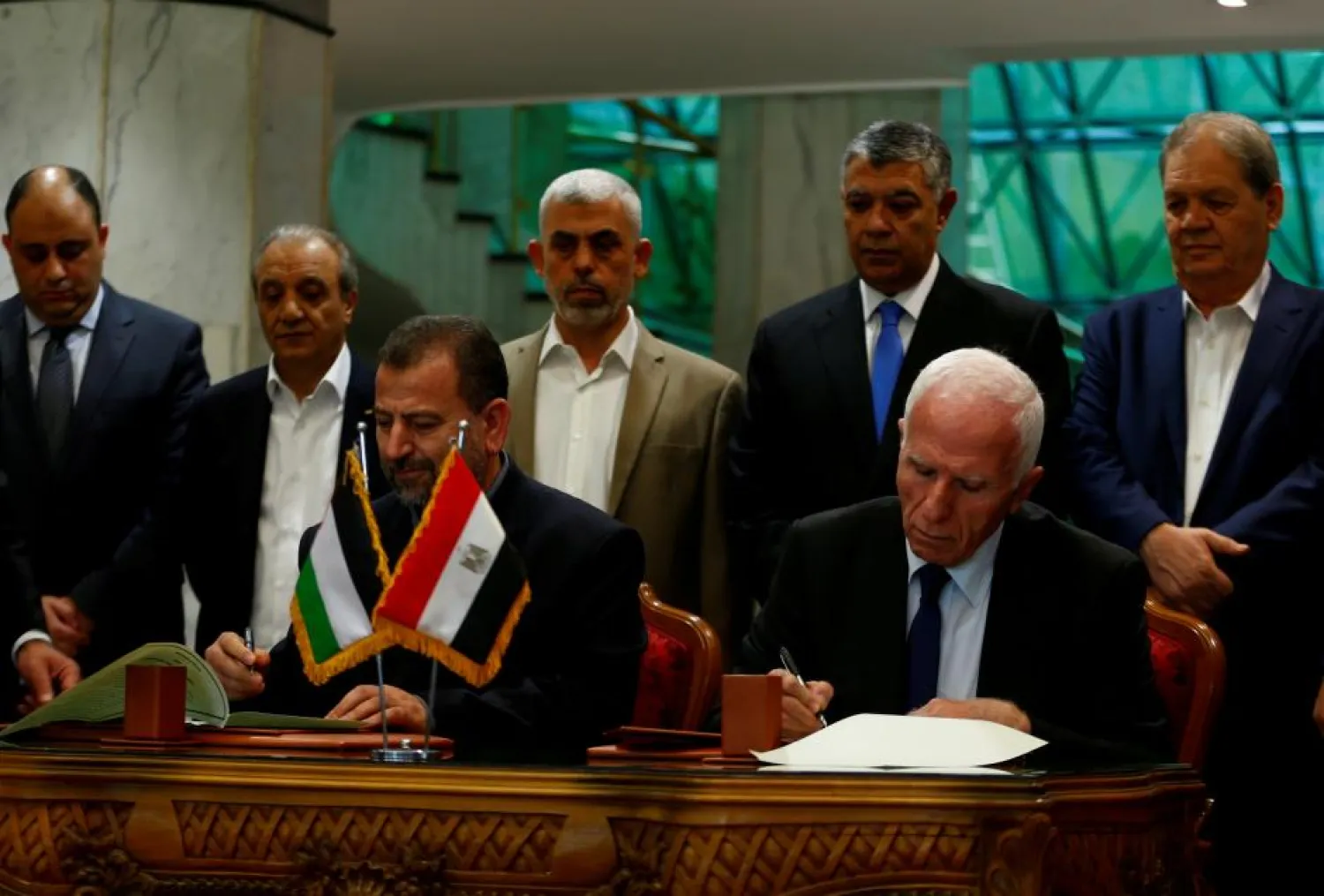Palestinian factions left Cairo on Thursday, after concluding a session of reconciliation talks with a joint statement on the need to hold general elections by the end of 2018.
In a statement issued on Thursday, Palestinian factions avoided addressing the thorny issues impeding the implementation of the reconciliation agreement, such as controlling security in the Gaza Strip or removing the punitive measures imposed by Palestinian President Mahmoud Abbas on Hamas.
Fatah and Hamas signed the reconciliation agreement on October 12, when the Palestinian Authority took over ministries and crossings in the Gaza Strip after being under Hamas’ control for 10 years.
After two days of meetings at the Egyptian General Intelligence headquarters, representatives of 13 factions and groups issued a joint statement on Thursday, which included six main items, mainly the recognition of the PLO as the sole legitimate representative of the Palestinians and the government exercising its full functions in the Gaza Strip.
Participants agreed to call on the Central Electoral Commission and the concerned parties to complete all preparatory works in order to conduct the presidential and legislative elections and the elections of the National Council concurrently by the end of 2018. It was also agreed to request President Mahmoud Abbas to set the date of the elections after consulting all national forces.
In this regard, Naji Sharrab, a professor of political science at Al-Azhar University in Gaza, said that the statement of the factions “was vague and general”. He stressed that the joint declaration “showed the great disparity in the concept of empowering the government.”
In earlier remarks to Asharq al-Awsat, sources said that the issue of empowering the government was a major dispute between Fatah and Hamas representatives. While the former wanted to ensure greater authorities for the cabinet at the level of ministries and security services, Hamas said it had offered everything it had in this regard.
In this context, Azzam al-Ahmad, head of the Fatah movement delegation for the reconciliation talks, noted that the majority of ministers faced great difficulties in taking over their duties, adding that there were “real obstacles impeding the work of the government.”
He added that a meeting would be held on the first of December in Cairo to discuss with Hamas the issue of empowering the government and the need for the Palestinian Authority to fully control the Strip.









